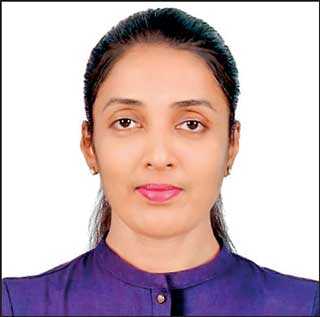Thursday Feb 19, 2026
Thursday Feb 19, 2026
Thursday, 30 April 2020 00:00 - - {{hitsCtrl.values.hits}}
By Medha de Alwis
As Sri Lanka stepped up its battle against the spread of the novel coronavirus (COVID-19) several hospitals were designated exclusively to handle patients suspected of or confirmed with the mysterious disease.
 |
Welikanda Corona Hospital Acting Consultant Physician Dr. Anuranga Senanayake
|
It is known that if a person gets suspicious symptoms he or she can go to the nearest hospital. Then the potential patient would be isolated in a ward which is called the ‘isolation unit’ while a sample will be taken for the PCR test (Polymerase Chain Reaction Test) and sent to the nearest virology lab.
The Daily FT spoke to Welikanda Corona Hospital Acting Consultant Physician Dr. Anuranga Senanayake to get an inside view of what process a COVID-19 patient goes through.
Welikanda Corona Hospital is the first hospital outside Colombo to be established to treat COVID-19 positive patients. It has been treating patients from the quarantine centres of Kandakaadu, Punani, Gal Kanda as well as the District General Hospital Polonnaruwa. More recently most of the patients were from Beruwela, Bandaranayake Mawatha, Negombo and Jaffna.
Sri Lanka has seen over 100 people recovering after being tested positive and released from hospital.
How is a COVID-19 patient treated in the hospital?
“We specifically treat patients who are tested positive with COVID-19,” Dr. Senanayake said. “Once the patient is admitted here, they are warded, as it happens in the normal procedure of an admitted patient.
“There are two acting consultant physicians here including myself, a medical officer in charge and 16 registered house officers as doctors. In addition to that there are nurses and all other healthcare staff.
“The moment a patient is admitted a comprehensive medical history of the patient is obtained and a symptom analysis is conducted. Blood tests and an ECG are conducted. This is to get an overall idea of the health situation of the patient – the health situation in addition to COVID-19. By an ECG, the intention is to exclude cardiac complications.”
What is the medicine given for COVID-19 patients?
“According to the national guidelines of the Ministry of Health Hydroxychloroquine is the drug that is administered on the patient. This drug is researched to reduce the viral load. We administer this drug to all COVID-19 patients who are symptomatic (who show corona symptoms) and asymptomatic (who do not show any symptoms).
“It is to be noted that the majority of our patients, to the extent that all most all of them are asymptomatic. These patients have come due to surveillance screening done in the community. Some of them have been traced to have had contact with another patient who was tested positive.”
How long should they stay in the hospital?
Both tests negative
“On the 14th day of admission, we conduct the PCR test again. If it is confirmed COVID-19 negative, a second test is conducted too. If both tests are confirmed negative, the patient is ready to be discharged from the hospital.”
One test negative
“If the first PCR test on the 14th day is negative and the second test is positive, the patient’s stay is extended for seven days, and the patient is again tested on the said extended seventh day. If the test is negative on that day, the patient would be discharged and sent home. The patient will be kept in the hospital for extended periods of seven days each, if the test is negative.
“Once home the cured patient is advised to isolate him/herself for a further period of 14 days.”
Patients with other medical complications
If the patient has additional medical complications to COVID-19, they will be treated for those too. It is for this purpose that a comprehensive medical history is obtained at the time of admission to Welikanda Corona Hospital.
What is the role of the hospital staff?
The healthcare staff has to be brave and efficient to treat COVID-19 patients. Dr. Senanayake illustrated that the healthcare workers are risking their lives in this service while highly commending her staff at Welikanda. “We take all precautionary measures such as personal protective equipment (PPEs), masks, etc. This is in the interest of all patients, the community as well as the individual healthcare workers.”
Message to the public
Corona can be an unseen sickness as many patients do not show any symptoms at all. This means that the community cannot take anything or anyone for granted. You may look completely healthy, but COVID-19 positive. This hidden disease element makes it more the necessary to take all safety precautions, and community testing is great if it can be implemented.